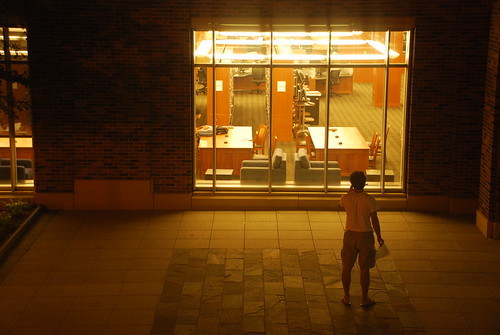The new look of the search interface for articles and databases went live this morning.
The functionality of the interface is almost exactly the same as the old site:
-
1. a quick keyword search for articles (searching top article databases including ProQuest and Academic OneFile)
2. an advanced article search that allows author and title keywords and allows you to choose a list of top databases for your subject (Arts and Humanities, Government, Life Sciences, etc.)
3. search for an article database by name, or browse an A-Z list of all our databases
4. browse for a database by your subject or discipline
The E-journals interface is unchanged; the new look debuted this summer.
Our first tip:
Why log in? I asked the developers and they explained that there’s no real need to log in if you are using the interface from a campus computer, but if you are off-campus, logging in gives you the full access to the databases through EZ-Proxy.
How do you like the new look and feel? Have you discovered any tips or time-savers to make this interface work for you? We’re just getting comfortable with it ourselves, so we’d love a chance to learn from you!
Written by Phoebe Acheson














 We’re currently encouraging faculty and students to test Connotea (
We’re currently encouraging faculty and students to test Connotea (